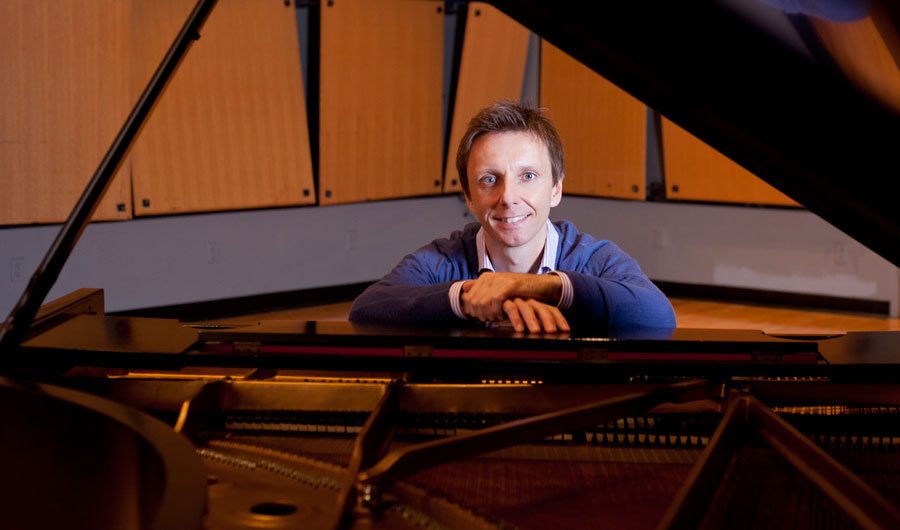
Wojciech Kocyan is clinical professor of piano in the College of Communication and Fine Arts, where he teaches piano and opera among other courses. Born in Poland, Kocyan has performed around the world and won multiple awards. In 2007, Gramophone magazine named his “Scriabin Prokofiew Rachmaninow” (Dux Records) as one of 50 best classical recordings ever made. He was interviewed by Editor Joseph Wakelee-Lynch.
When did you start playing piano?
When I was 6 years old.
When did you first realize you wanted to be a pianist?
I was about 13 or 14. I always loved playing the piano, but at that age, I knew it was the only thing I wanted to do.
Has piano instruction in recent decades improved performers’ technical skills and their gift for the art form?
We have made great strides in teaching the physical aspect. So compared to 50 years ago, not to mention 100, we have many more pianists at age 15 or 16 who play a repertoire reserved in the past for only the top professional pianists. But we do not have more great artists than we had 100 years ago. It still is a gift, and it is a matter of the chosen few.
Are you more concerned with the technical proficiency that students must master or students’ development as artists?
The artistry is always my main concern. The technical aspect is, of course, the bread and butter of what I do. But at LMU, people study for a bachelor of arts degree, which is broader than a performing degree. I’m interested in instilling a passion and understanding of how to approach art and music that will last a lifetime. I’m not saying that at LMU we do not have pianists who play a demanding repertoire. We do. But we educate in a broader sense.
When you give recitals, are you more attracted to pieces that are technically challenging or those that are artistically appealing?
The artistic side is all that attracts me. Of course there are some pieces that are just fun to play because they are difficult. One takes a certain pleasure or satisfaction from walking on a high wire, so to speak. But I rarely would choose to play a piece just to perform this act. I always want to know why I am going to walk on that wire.
Are there pieces that are almost impossible to play?
There are pieces that stand out, especially in modern music. The only difference between the pieces that are easy, difficult or impossible to play is how long it takes to learn them. Nothing is impossible. An easy piece will take a week, and an impossible piece will take three years. If you’re willing to spend the time, anything can be done.
Is there one composer for whom you have such high regard that you believe your life would be different if he had never lived?
Yes, Mozart. He is the most complete composer. He is the most sublime, but also the most human of them all. There is something on the level of God speaking to him, but at the same time, he never forgets that he is a human being. It’s this human element that he understood so deeply that touches me every day.
